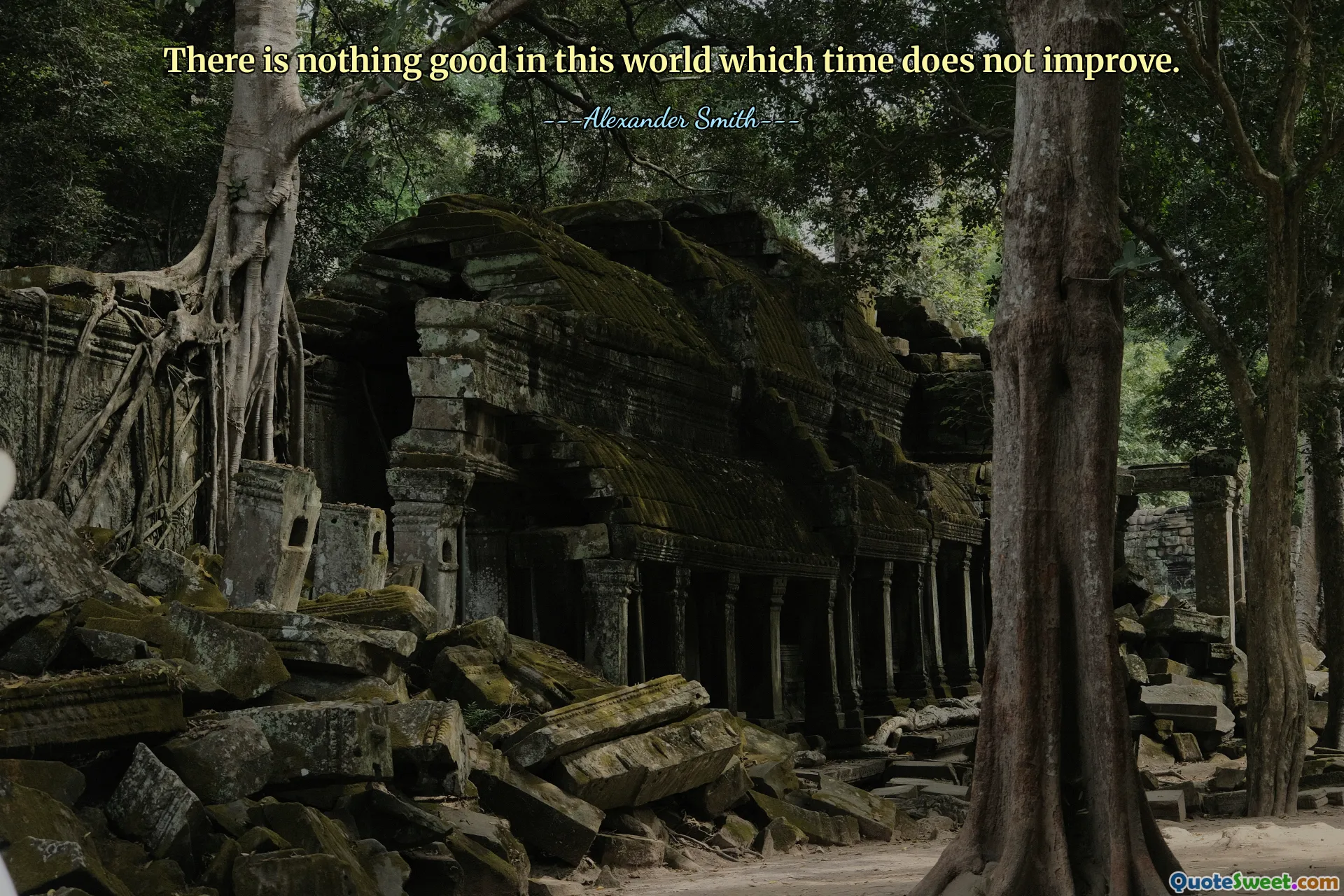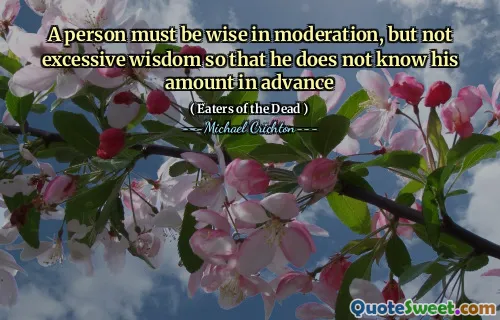
There is nothing good in this world which time does not improve.
This quote encapsulates the optimistic belief that time possesses an inherent capacity to heal wounds, clarify misunderstandings, and turn imperfect situations into better ones. It suggests that even in the face of adversity, chaos, or imperfection, patience and the passage of time can bring about positive change. Such a perspective invites us to adopt a hopeful attitude, trusting that hardships are temporary and that growth often follows challenge. The notion aligns with the idea that human experiences are dynamic; what may seem terrible today can become a valuable lesson or a distant memory tomorrow. It encourages resilience, emphasizing that patience is a vital virtue during difficult times. Additionally, it reflects the evolutionary nature of life—people, relationships, circumstances all evolve and improve over time if given the space and dedication. In our personal lives, this sentiment can inspire perseverance through tough periods, reminding us that setbacks are often temporary and that improvements are possible with time. Culturally, it echoes wisdom found in many traditions that emphasize patience, endurance, and hope as pathways to a better future. Overall, it serves as a gentle reminder to maintain faith in the process of life's natural progression, knowing that time's passage is an agent of positive transformation.











